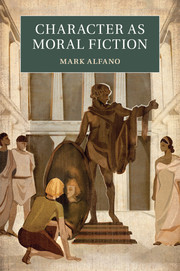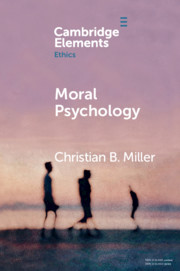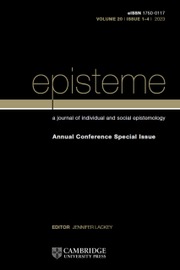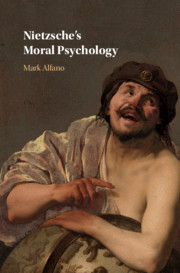Character as Moral Fiction
Everyone wants to be virtuous, but recent psychological investigations suggest that this may not be possible. Mark Alfano challenges this theory and asks, not whether character is empirically adequate, but what characters human beings could have and develop. Although psychology suggests that most people do not have robust character traits such as courage, honesty and open-mindedness, Alfano argues that we have reason to attribute these virtues to people because such attributions function as self-fulfilling prophecies – children become more studious if they are told that they are hard-working and adults become more generous if they are told that they are generous. He argues that we should think of virtue and character as social constructs: there is no such thing as virtue without social reinforcement. His original and provocative book will interest a wide range of readers in contemporary ethics, epistemology, moral psychology and empirically informed philosophy.
- Extends the situationist challenge from virtue ethics to virtue epistemology
- Introduces and interprets a wealth of studies from behavioral and experimental economics
- Includes broad discussion of contemporary empirical results in psychology
Reviews & endorsements
"The 'character wars' that have unsettled moral philosophy for the past decade or so have resulted not in scorched earth, but in fertile ground, nurturing a genuinely interdisciplinary study of character, drawing researchers with both scientific and philosophical training, and developing insights from both psychology and ethics. Among the most imaginative and provocative contributions to this burgeoning field is Mark Alfano's Character as Moral Fiction. If you work in the area, Alfano's book is a mandatory read; if you're wondering about it, this is where you should start."
John Doris, Washington University in St Louis
"The book will be valuable for serious students of philosophy looking for a better-than-average integration of empirical work with philosophical reflection. The reference list is also a valuable resource for any serious student of epistemic or moral virtue and the challenges to these paradigms … Recommended. Upper-level undergraduates through researchers/faculty."
A. P. Schwab, Choice
"Alfano claims that we have reason to attribute robust character traits such as courage, honesty, and open-mindedness to people because such attributions function as self-fulfilling prophecies … contains many interesting ideas, which Alfano presents in an engaging way, and is a welcome addition to the literature."
Analysis and Metaphysics
Product details
July 2015Paperback
9781107538122
238 pages
230 × 152 × 13 mm
0.35kg
5 tables
Available
Table of Contents
- Introduction: Tripartite naturalistic ethics
- Part I. Factitious Moral Virtue:
- 1. Identifying the hard core of virtue ethics
- 2. Rearticulating the situationist challenge to virtue ethics
- 3. Attempts to defend virtue ethics
- 4. Factitious moral virtue
- Part II. Factitious Intellectual Virtue:
- 5. Extending the situationist challenge to responsibilist virtue epistemology
- 6. Extending the situationist challenge to reliabilist virtue epistemology
- 7. Factitious intellectual virtue
- Part III. Programmatic Conclusion:
- 8. To see as we are seen: an investigation of social distance heuristics.








